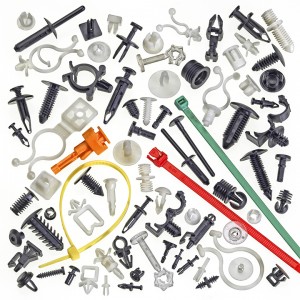 Nylon is a synthetic material that was first developed and introduced in the market as a type of fabric in the thirties. And although nylon is still heavily used in the fashion industry, it is also used in a variety of other industries, including the automotive industry and the manufacturing of carpets.
Nylon is a synthetic material that was first developed and introduced in the market as a type of fabric in the thirties. And although nylon is still heavily used in the fashion industry, it is also used in a variety of other industries, including the automotive industry and the manufacturing of carpets.
Nylon is also used in creating fasteners which are commonly used in electronics. Nylon fasteners offer several advantages. These include a high amount of insulation and resistance to corrosion. Compared to aluminum, another material heavily used in electronics, nylon is lighter, stronger and offers high wear resistance.
Nylon can also be customized to suit product design. You can find nylon hardware in various finishes ranging from lustrous to dull finishes.
Many manufacturers prefer to use nylon hardware because they do not burn. Instead, they melt, making them ideal for the production of fire-resistant items. Flame retardants may be added in the manufacturing of these fasteners. Other manufacturers use these for products which have outdoor applications because they can resist fading caused by exposure to sunlight and can resist corrosion caused by a few chemicals.
Nylon hardware may be manufactured using a variety of plastics. For example, acetal may be used to bolster durability while minimizing water absorption. Polyvinyl chloride or PVC is used to enhance the hardware’s ability to resist the elements. Polypropylene, on the other hand, helps increase both durability and strength. This type of nylon fastener is often used in electronics, telecommunications, computers and cars.
Other manufacturers use fiberglass in the production of nylon to further enhance the material’s performance.
But despite the versatility and other appealing qualities of nylon hardware, due caution must be dispensed when using them for some applications. What applications are these?
The use of nylon hardware should be avoided in applications where moisture should be avoided. Nylon can attract water molecules, which in turn can make it swell. The use of nylon hardware is inadvisable for maritime applications.
Nylon can become brittle and yellowish when exposed to the sun’s UV rays. The use of the hardware should also be avoided in environments where they are exposed to acids and halogens.
Nylon hardware have a capacity to withstand temperatures up to 223 degrees Celsius. They also have a fair amount of tensile strength that is up to 10,000 PSI. If the application requires a fastener with a higher amount of PSI, consider using a different type of fastener.
